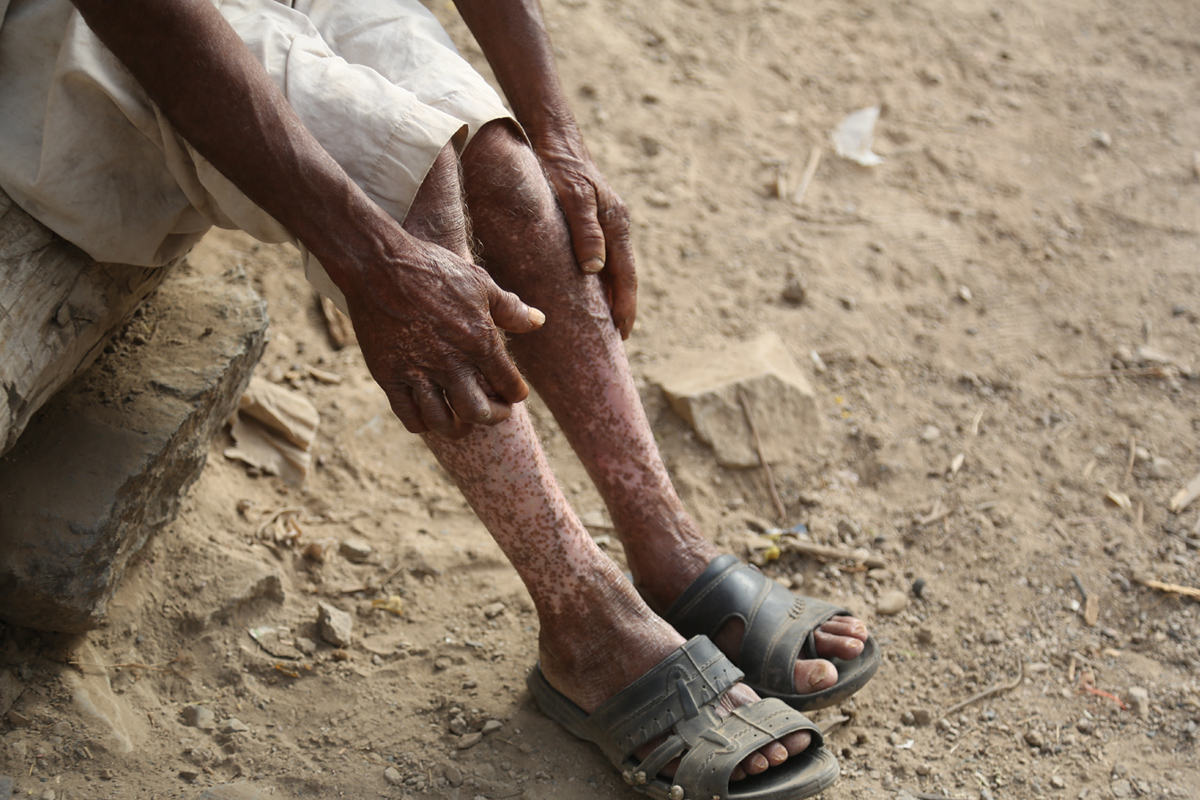Introduction
 Unlike in Africa, Yemen has no records of eye complications or blindness due to onchocerciasis. The disease manifests in a localized form, mainly of the lower legs, as “onchodermatitis” or “reactive onchodermatitis”. Intense itching and skin irritation associated with severe manifestations lead to skin abrasions and other dermal infections.Onchocerciasis – or “river blindness” – is a parasitic disease caused by the filarial worm Onchocerca volvulus transmitted by repeated bites of infected blackflies (Simulium spp.). These blackflies breed along fast-flowing rivers and streams, close to remote villages located near fertile land where people rely on agriculture.
Unlike in Africa, Yemen has no records of eye complications or blindness due to onchocerciasis. The disease manifests in a localized form, mainly of the lower legs, as “onchodermatitis” or “reactive onchodermatitis”. Intense itching and skin irritation associated with severe manifestations lead to skin abrasions and other dermal infections.Onchocerciasis – or “river blindness” – is a parasitic disease caused by the filarial worm Onchocerca volvulus transmitted by repeated bites of infected blackflies (Simulium spp.). These blackflies breed along fast-flowing rivers and streams, close to remote villages located near fertile land where people rely on agriculture.
Onchocerciasis causes sever itching, skin damage (“onchodermatitis” or “reactive onchodermatitis”) and eye lesions eventually leading to visual impairment and permanent blindness.
Ivermectin is used for the mass treatment of affected populations.
In the Eastern Mediterranean Region, onchocerciasis is transmitted in Yemen and Sudan with an estimated one million people requiring preventative treatment in 2018. By the end of 2017, Sudan had stopped mass drug administration and completed post-treatment surveillance in at least one transmission area.
Onchocerciasis is targeted for elimination defined as verified interruption of transmission by 2030 in at least 12 countries globally.


